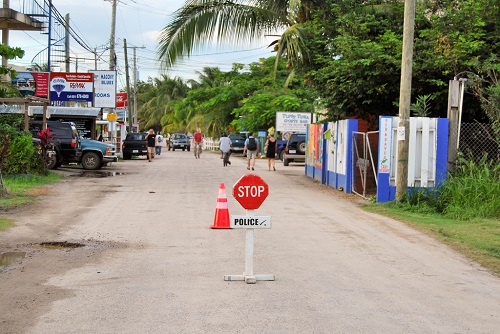flickr photo
By
Ricardo Swire
Belize is one of the Caribbean Community’s (CARICOM), fifteen member States. 2018’s two hundred and ninety-four page US State Department International Narcotics Control Strategy Report again listed Belize in its “major drug trafficking and money laundering country” category. Since local currency is pegged to the US dollar, ultra-modern transnational drug trafficking organizations regard Belize as a preferred marijuana and cocaine transportation hub.
Large stretches of remote, unpopulated jungles on Belize’s border with Guatemala allow trafficking of marijuana and synthetic drugs. The “Corozal Commercial Free Zone (CFZ)” was designed to attract neighbouring Mexican citizens to duty free shopping and foreign investment, capitalizing on Belize’s close proximity to the world’s second largest global trading block or North American Free Trade Agreement (NAFTA).
Reports confirm the project as a trade-based money laundering facilitator of illegal importation of duty free products. The country aggressively promotes non-resident opportunities for ownership of offshore bank accounts and International Business Companies (IBCs). Government supports joint ventures and partnership investments as preferred working commercial mechanisms. Regulators also allow one hundred percent foreign ownership of an enterprise.
Belize has a complete catalogue of rules and regulations designed to manage government investments. Policies include the Fiscal Incentives Act, Export Incentives Act, the Export Processing Zone Act, Commercial Free Zone Act, International Business Companies Act, the Trusts Act, Offshore Banking Act, the Gaming Act and Companies Act. Regional security officials assess Belize’s sources of money laundering originate from drugs trafficking, tax evasion, securities fraud and conventional structuring schemes.
In 2014 the Caribbean Financial Action Task Force (CFATF) took Belize’s transnational criminal organization’s money laundering intrusive enough to request that member states impose countermeasures to protect their financial assets in Belize. Officials found the internal security susceptibility resulted from lack of legislation enforcement, non-compliance to regulations, strong bank secrecy protections, plus weak investigatory and prosecutorial capacities.
Ricardo Swire
Ricardo Swire is the Principal Consultant at R-L-H Security Consultants & Business Support Services and writes on a number of important issues.



No Comments Yet!
You can be first to comment this post!